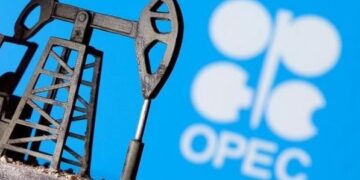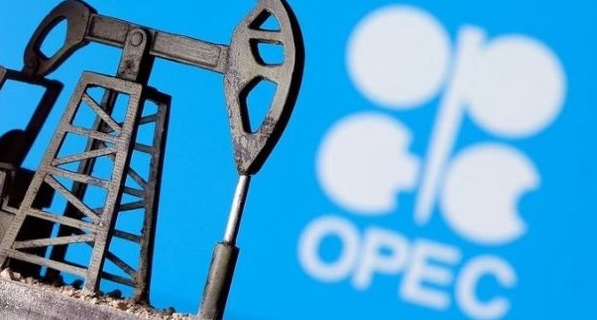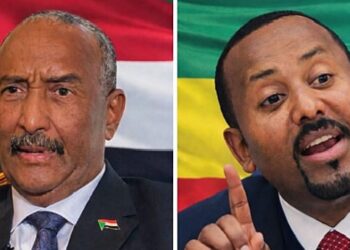By John Ikani
Indications emerged on Thursday that the total oil output by the Organisation of Petroleum Exporting Countries (OPEC) experienced an uptick in August. Nigeria played a pivotal role in this surge, primarily due to the resumption of production at the Forcados terminal. Additionally, Iran marked its highest supply levels since 2018.
According to a survey, Nigeria emerged as the second-largest contributor to increased output, despite ongoing efforts by Saudi Arabia and other OPEC+ members to curtail production in support of the market. During the month under review, OPEC collectively pumped 27.56 million barrels per day (bpd), marking a 220,000 bpd rise from the previous month, which notably, was the first increase since February.
The survey reported, “The second-largest increase in OPEC output this month came from Nigeria, where exports resumed from the Forcados terminal after a shutdown.” However, it was highlighted that OPEC’s output still lags behind the agreed target by nearly 800,000 bpd, mainly because Nigeria and Angola struggle to meet their production quotas.
For context, while the report did not specify Nigeria’s August production volume, July figures revealed a production rate of just 1.08 million bpd, falling short of the 1.742 million bpd allocation from OPEC. This predicament has put further strain on Nigeria’s economy, as the oil sector’s contribution to real Gross Domestic Product (GDP) remained at a mere 5.34 percent in Q2, 2023.
Despite substantial investments to combat oil theft, which the country attributes to underproduction, little progress has been made. Production continues to hover between 1 million bpd and 1.25 million bpd, resulting in daily losses exceeding 400,000 bpd.
In an attempt to address this issue, the federal government, through the Nigerian National Petroleum Company Limited (NNPCL), enlisted the services of local security groups, including one led by the former Niger Delta militant, Government Ekpemupolo, popularly known as Tompolo. Nevertheless, Nigeria’s production challenges persist.
In contrast to Nigeria’s struggles, Iran’s exemption from OPEC cuts, has seen its oil exports rise in 2023 despite U.S. sanctions. This development complicates OPEC+’s efforts to manage the market effectively.
Among OPEC members bound by supply cut agreements, output from ten countries experienced a modest decline of 10,000 bpd, with Saudi Arabia and other Gulf members maintaining strong compliance with agreed cutbacks and additional voluntary reductions. Saudi Arabia, the top exporter, kept its August output nearly constant at 9 million bpd, extending a voluntary 1 million bpd production cut for an additional month to support the market.
Iran’s oil output in August reached 3.10 million bpd, its highest since 2018 when U.S. sanctions were reinstated. Analysts attribute the increase to Iran’s ability to evade U.S. sanctions and Washington’s leniency in enforcing them, as both countries seek improved relations.
Meanwhile, six months into his tenure as Chief Executive at Shell Plc, Wael Sawan decided to discontinue the world’s most extensive corporate plan for developing carbon offsets. This environmental initiative, designed to counteract CO2 emissions, was omitted from Sawan’s updated strategy for the oil major.
Shell had previously committed to investing up to $100 million annually in carbon credits, aiming to eliminate its emissions by 2050. However, the company has now retired these offset program goals, leaving its future climate commitments uncertain.
This shift underscores Sawan’s renewed focus on the profitable oil and gas sector, acknowledging that the prior goals were unattainable. It also raises questions about the effectiveness of offsets, which have gained prominence as a controversial climate solution for many large companies.
According to Bloomberg New Energy Finance, the voluntary carbon market, valued at around $2 billion today, could potentially grow to $950 billion by 2037. Flora Ji, who has overseen Shell’s “nature-based solutions” operations since 2021, noted that the carbon market failed to expand rapidly enough to meet rising demand, resulting in a departure from the ambitious offset targets.
In the midst of these developments, Nigeria, heavily reliant on oil exports for over 90 percent of its foreign exchange earnings, has committed to achieving net-zero emissions by 2060. However, the strategy to accomplish this ambitious goal remains unclear.




































